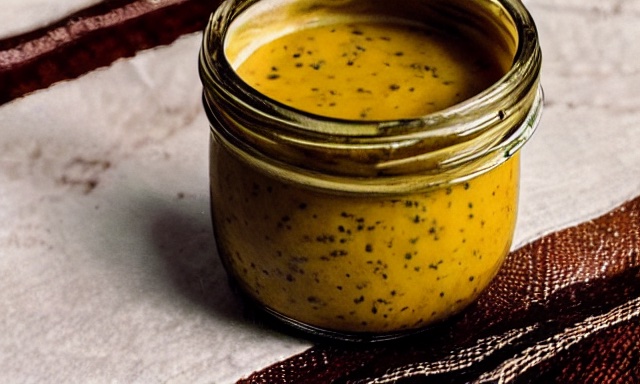Internet Asks: “Is Mustard Acidic?”
Ever wondered about the acidity of that golden spread - mustard - as you lavishly apply it on your hot dog or burger? You're in good company! Recognizing the acidity of our food and its health implications is crucial. In this concise exploration, we delve into mustard's acidity, its creation process, potential health benefits, and its impact on specific health conditions. So, ready for a quick dive into the zesty world of mustard? Let's go!
sponsored links

Understanding the pH Scale
The pH scale measures the acidity or alkalinity of a substance, ranging from 0 (most acidic) to 14 (most alkaline), with 7 being neutral. Each whole number change represents a tenfold change in acidity or alkalinity. Understanding the pH scale is essential for determining the potential effects of a substance on the body, cooking, or cleaning..
Is Mustard Acidic?
Yes, mustard is acidic. Its pH level is between 3.55 and 4.6, which falls within the range of acidic substances. However, the acidity of mustard is not typically a cause for concern, as it is generally consumed in small amounts as a condiment. Many other foods and beverages that we consume on a regular basis are also acidic, such as coffee, tomatoes, and citrus fruits.
How is Mustard Made?
Making mustard involves simple ingredients: mustard seeds, vinegar, and water. The mustard seeds are soaked in vinegar or water to soften them, then ground into a paste or powder. The type of mustard depends on the seeds used and any additional flavorings like honey, herbs, or spices. The mixture is left to mature for a few days, allowing the flavors to meld together.
sponsored links
Potential Health Benefits of Mustard
Mustard is more than just a flavorful condiment; it has several potential health benefits:
Mustard and GERD
While mustard is generally considered safe for consumption, it can potentially cause issues for those with certain health conditions. People with acid reflux or GERD (gastroesophageal reflux disease) may experience symptoms such as heartburn or indigestion after consuming acidic foods, including mustard. It is important for individuals with these conditions to monitor their intake of acidic foods and beverages to manage their symptoms effectively. If you have any concerns or questions about how mustard may affect your health, it is best to consult a healthcare professional.
Mustard Substitutes
For those with GERD or acid reflux, mustard can be a problematic ingredient due to its acidic nature. However, there are alternatives that can be used as a substitute. One option is to try a low-acid version of mustard, as it may have a lower pH level. Another option is to use herbs and spices to add flavor to dishes instead of mustard. For example, you could try using basil, oregano, or garlic in place of mustard in a recipe. It is important to experiment with different substitutes to find the best option for your taste preferences and health needs.
Conclusion
In conclusion, while mustard is acidic, it is generally safe for consumption in moderation as a condiment. Its acidity level is similar to many other commonly consumed foods and beverages. Mustard offers several health benefits, but it may cause issues for those with GERD or acid reflux. Always consult a healthcare professional if you have any concerns about how mustard may affect your health. Alternatives such as low-acid versions of mustard or using herbs and spices can also be considered. Enjoy mustard's flavor and health benefits, but remember to consume it in moderation.
sponsored links
References
-
- 1. Encyclopedia. Mustard. https://www.encyclopedia.com/plants-and-animals/plants/plants/mustard
- 2. USDA FoodData Central. Mustard, prepared, yellow. https://fdc.nal.usda.gov/fdc-app.html#/food-details/326698/nutrients
- 3. Mayo Clinic. Gastroesophageal reflux disease (GERD). https://www.mayoclinic.org/diseases-conditions/gerd/symptoms-causes/syc-20361940
- 4. HealthLine. Food alternatives for a GERD diet. https://www.healthline.com/health/gerd/diet-nutrition
- 6. Verywell Fit. The Health Benefits of Mustard. https://www.verywellfit.com/mustard-health-benefits-4584218
People are also reading...
🍌 Why do Bananas Give Me Heartburn?
🍓 Are Strawberries Acidic?
🍉 Is Watermelon Acidic?
🥛 Does Milk Help Heartburn?
🍍 Are Pineapples Acidic?
🥭 Are Mangoes Acidic?
Ready to level-up?
Create meal plans 10x faster, follow up with your clients through our mobile app, and never struggle with meal planning or recipe management again.